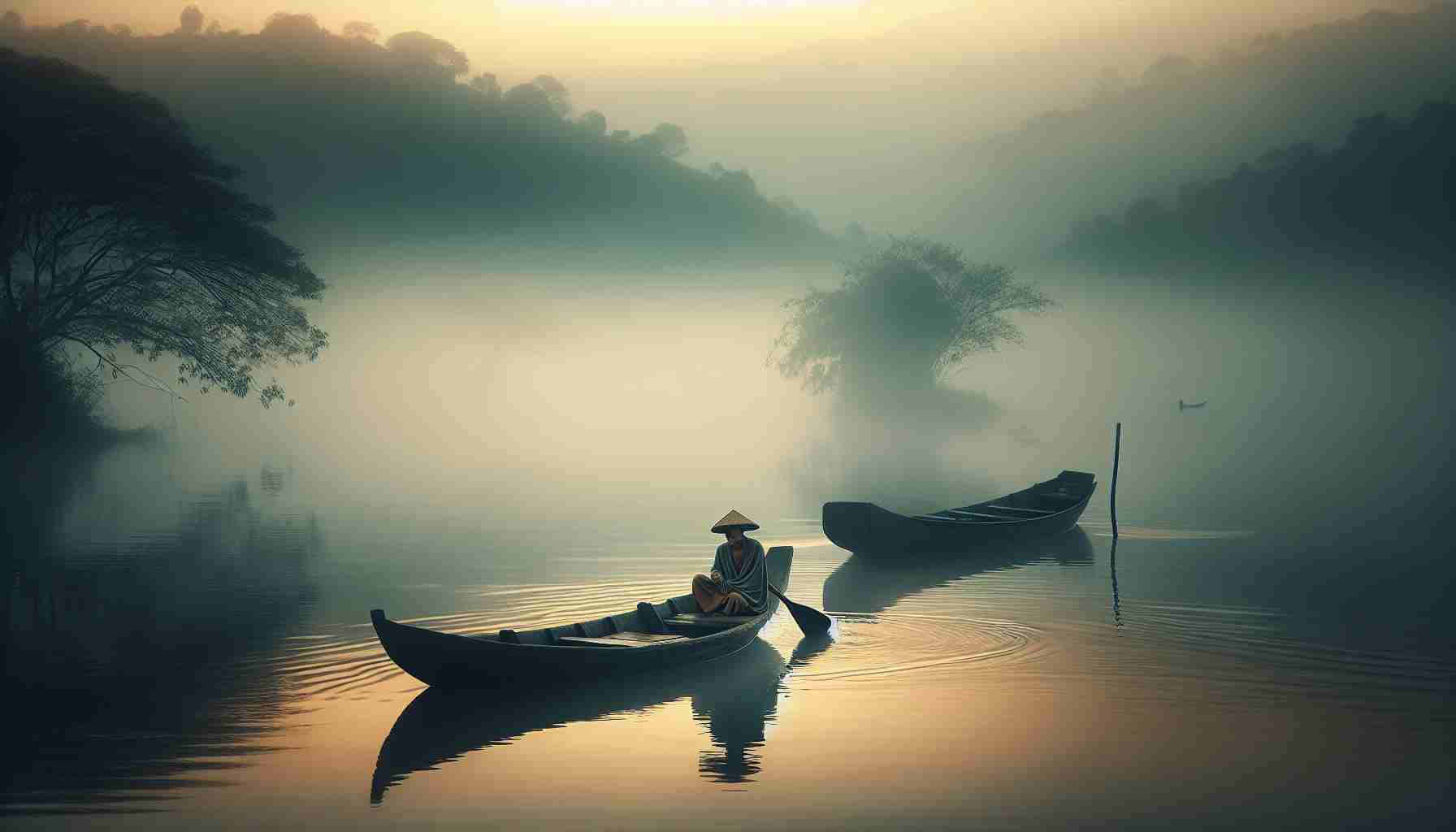

The river was quiet that morning, wrapped in a soft mist. I held the oar in my hands, my little boat drifting gently through the water. My name is Kuan, and I was just a simple fisherman, born near the River Li. I wasn’t looking for anything special that day—just a few fish and a bit of peace.
But peace had been hard to find. My heart had been heavy. Life had become full of worries—too many mouths to feed, too many things to fix. I kept paddling, faster sometimes, hoping that moving more would somehow fix it all.
Then it happened.
I was deep in thought when another boat came drifting through the fog. It moved straight at me, silent, almost like a ghost. I shouted, “Hey! Watch where you’re going!” But the boat didn’t slow down.
It bumped into mine with a soft thunk. I stood up, angry, ready to yell at whoever was inside.
But the boat was empty.
No one was steering it. Not a single person on board. Just an old, wooden boat swaying on the water, pushed by the wind and current.
I stared.
All that yelling, all that anger—aimed at nobody. I laughed a little, then sat back down. My anger didn’t have anywhere to go. That little boat had taught me something without saying a word.
Later that day, I visited the old monk who lived nearby. People said he was very wise, and I told him what happened. He smiled, his eyes twinkling like stars.
“Ah,” he said, “Zhuangzi told a story like that. A man got angry at a boat that crashed into his. But it was empty. When there’s no one to blame, the anger fades by itself.”
“But if someone had been inside…?” I asked.
“Then we blame. Then we shout. But the Tao”—he pointed his finger calmly toward the trees—“teaches us balance. Wu Wei means not pushing. Not forcing. Be like the empty boat sometimes. Drift, don’t fight. And when others bump into you, maybe they aren’t trying to hurt you. Maybe they’re just drifting too.”
His words sank into my heart like small stones falling into deep water.
After that, I still had troubles—but something had changed. When people were unkind, I thought of the empty boat. Maybe they weren’t meaning to harm me. Maybe they were just lost in the fog, like I had been.
And when I felt overwhelmed, I didn’t fight the river of life so much. I let things come and go. I kept my boat light, and my heart even lighter.
I didn’t become a great scholar or monk. I just stayed Kuan the fisherman. But now, every time I see a boat drift by, I smile.
Because I remember that simple truth: Peace comes when we stop blaming and start floating.
And somehow, that has made all the difference.
The river was quiet that morning, wrapped in a soft mist. I held the oar in my hands, my little boat drifting gently through the water. My name is Kuan, and I was just a simple fisherman, born near the River Li. I wasn’t looking for anything special that day—just a few fish and a bit of peace.
But peace had been hard to find. My heart had been heavy. Life had become full of worries—too many mouths to feed, too many things to fix. I kept paddling, faster sometimes, hoping that moving more would somehow fix it all.
Then it happened.
I was deep in thought when another boat came drifting through the fog. It moved straight at me, silent, almost like a ghost. I shouted, “Hey! Watch where you’re going!” But the boat didn’t slow down.
It bumped into mine with a soft thunk. I stood up, angry, ready to yell at whoever was inside.
But the boat was empty.
No one was steering it. Not a single person on board. Just an old, wooden boat swaying on the water, pushed by the wind and current.
I stared.
All that yelling, all that anger—aimed at nobody. I laughed a little, then sat back down. My anger didn’t have anywhere to go. That little boat had taught me something without saying a word.
Later that day, I visited the old monk who lived nearby. People said he was very wise, and I told him what happened. He smiled, his eyes twinkling like stars.
“Ah,” he said, “Zhuangzi told a story like that. A man got angry at a boat that crashed into his. But it was empty. When there’s no one to blame, the anger fades by itself.”
“But if someone had been inside…?” I asked.
“Then we blame. Then we shout. But the Tao”—he pointed his finger calmly toward the trees—“teaches us balance. Wu Wei means not pushing. Not forcing. Be like the empty boat sometimes. Drift, don’t fight. And when others bump into you, maybe they aren’t trying to hurt you. Maybe they’re just drifting too.”
His words sank into my heart like small stones falling into deep water.
After that, I still had troubles—but something had changed. When people were unkind, I thought of the empty boat. Maybe they weren’t meaning to harm me. Maybe they were just lost in the fog, like I had been.
And when I felt overwhelmed, I didn’t fight the river of life so much. I let things come and go. I kept my boat light, and my heart even lighter.
I didn’t become a great scholar or monk. I just stayed Kuan the fisherman. But now, every time I see a boat drift by, I smile.
Because I remember that simple truth: Peace comes when we stop blaming and start floating.
And somehow, that has made all the difference.